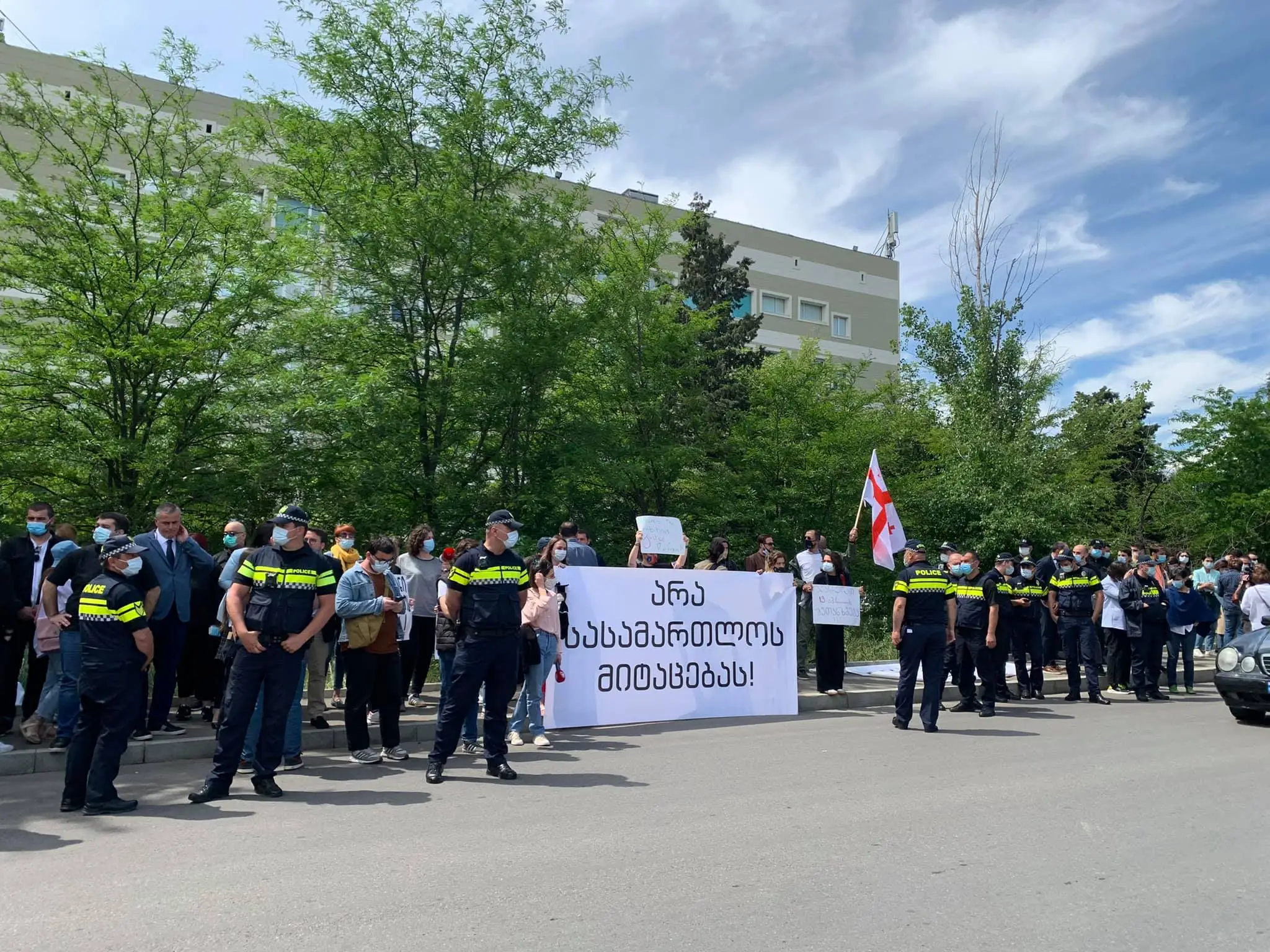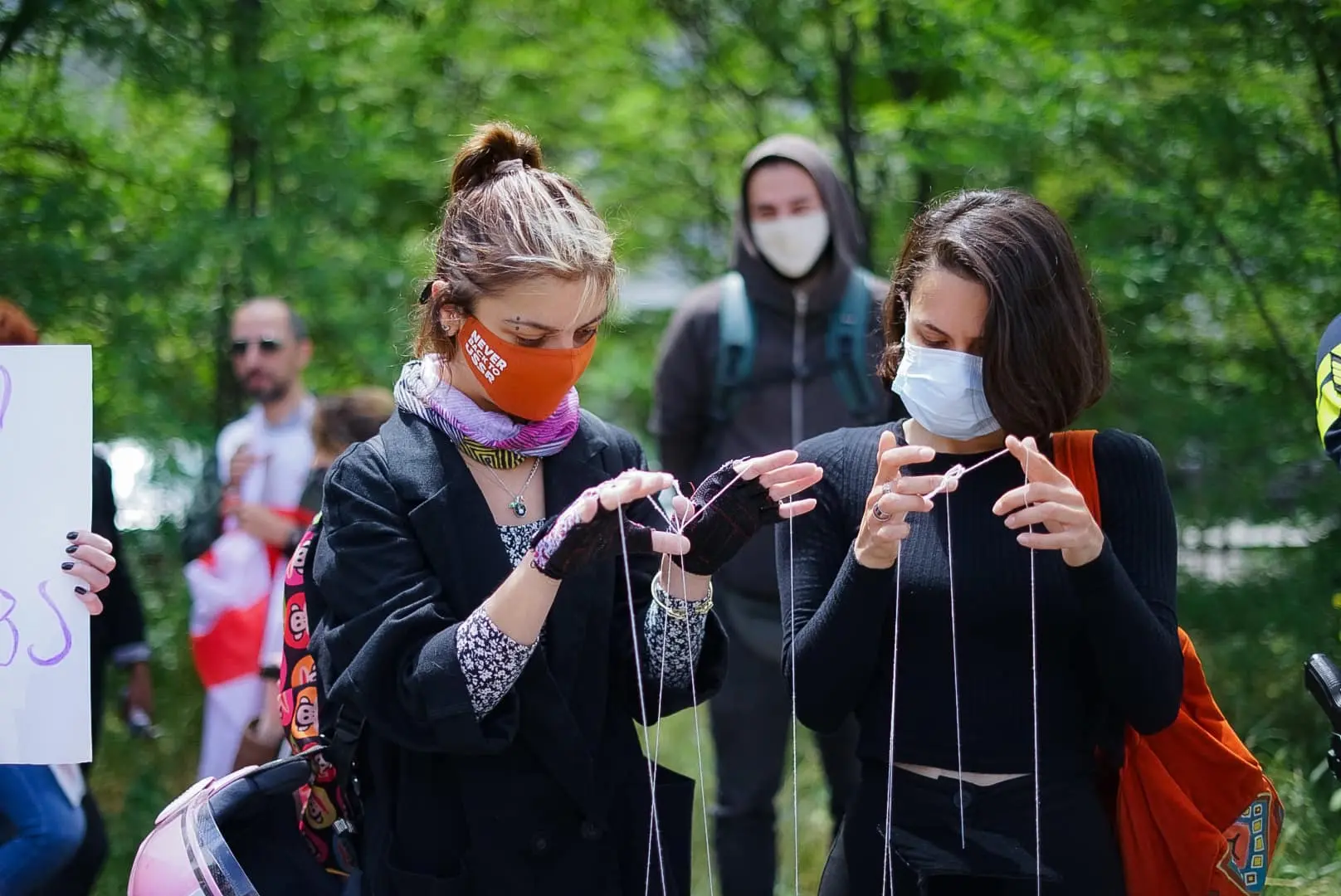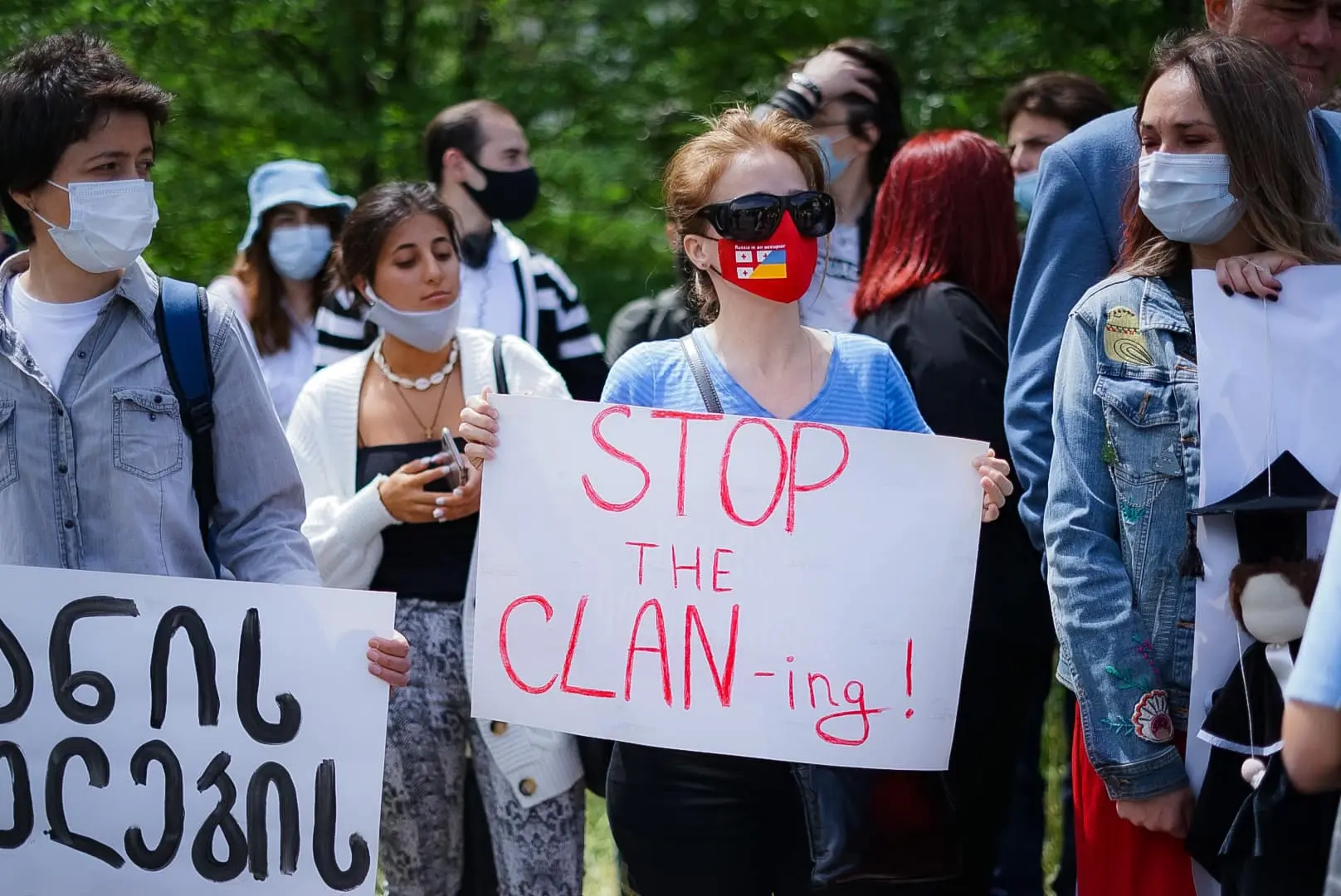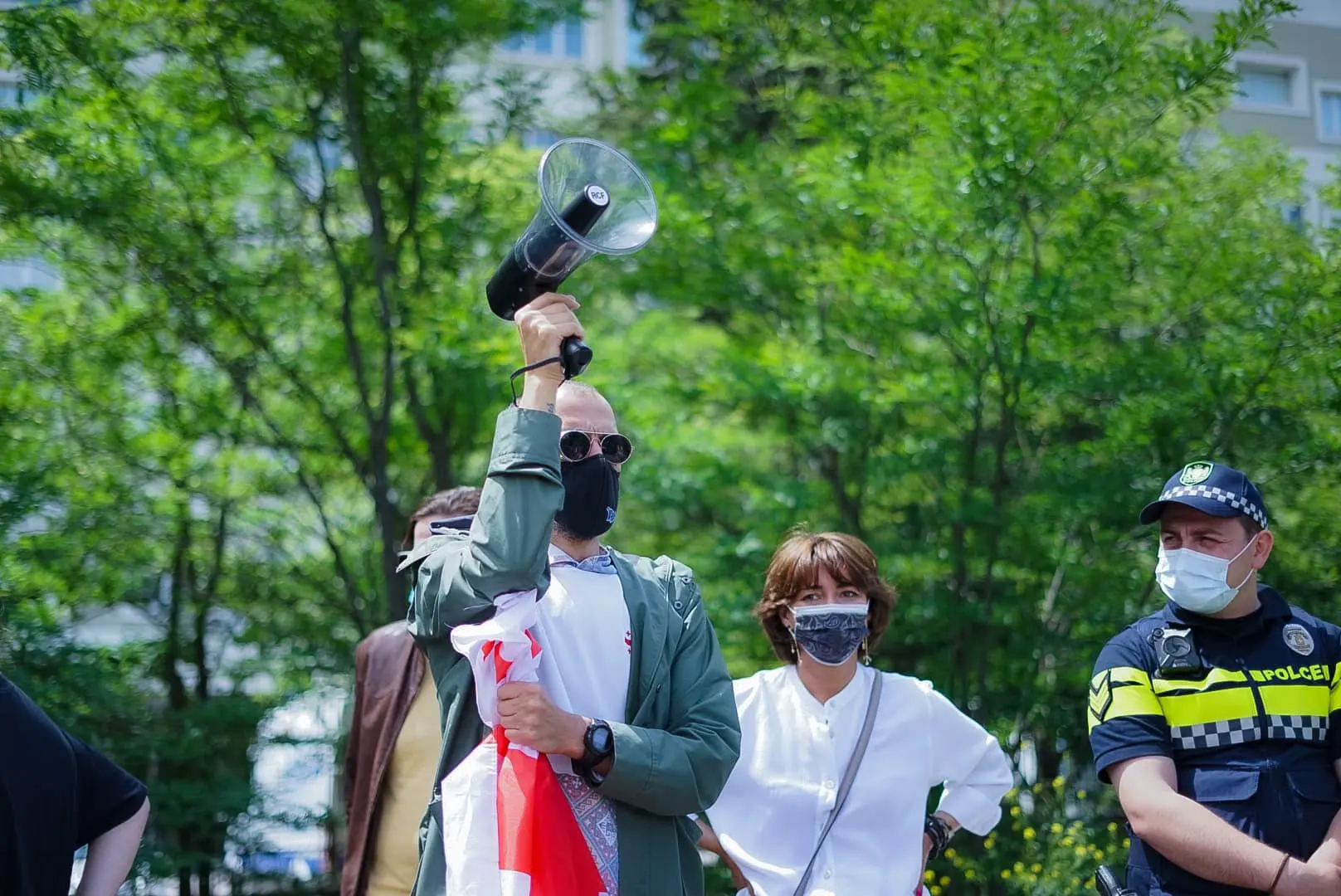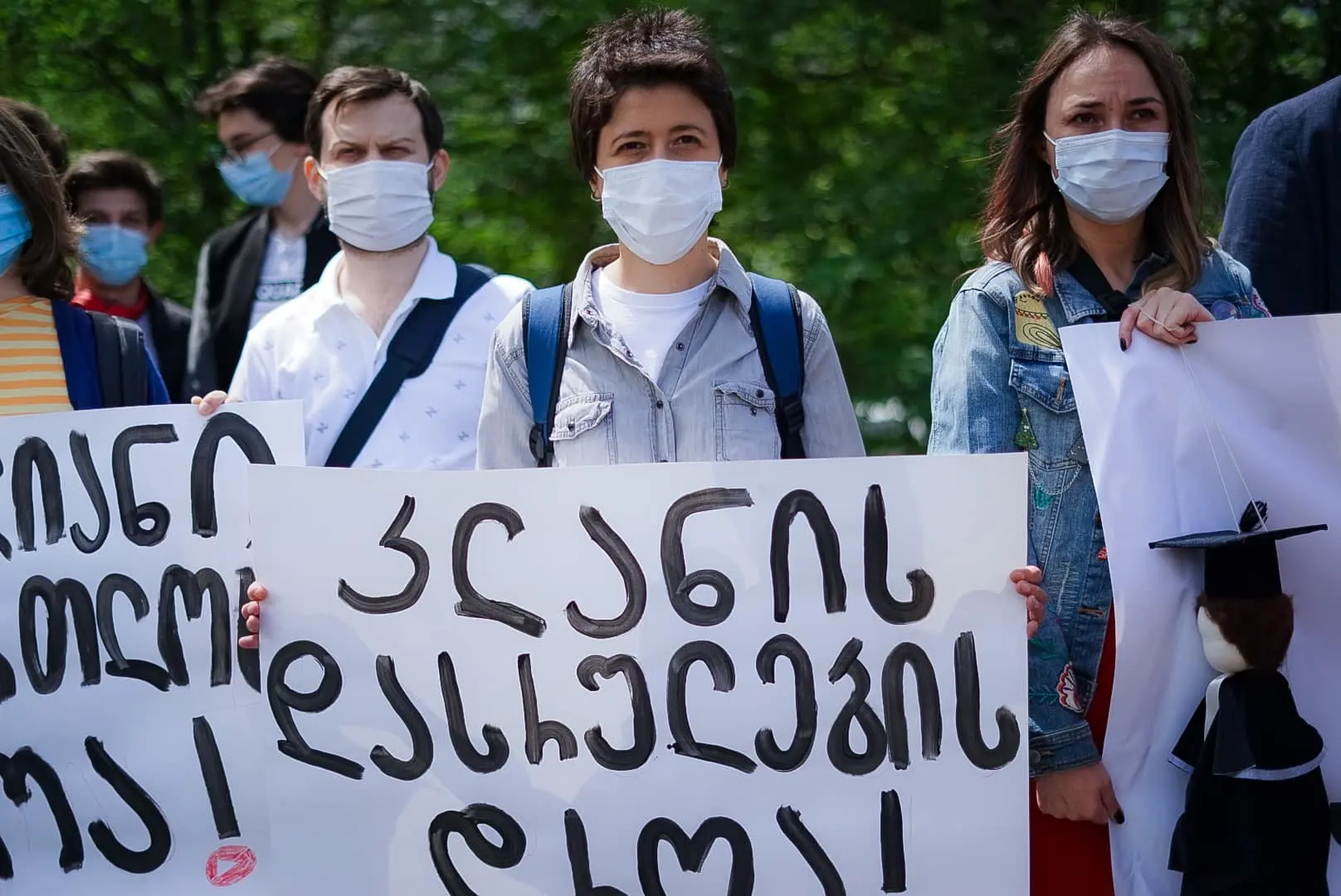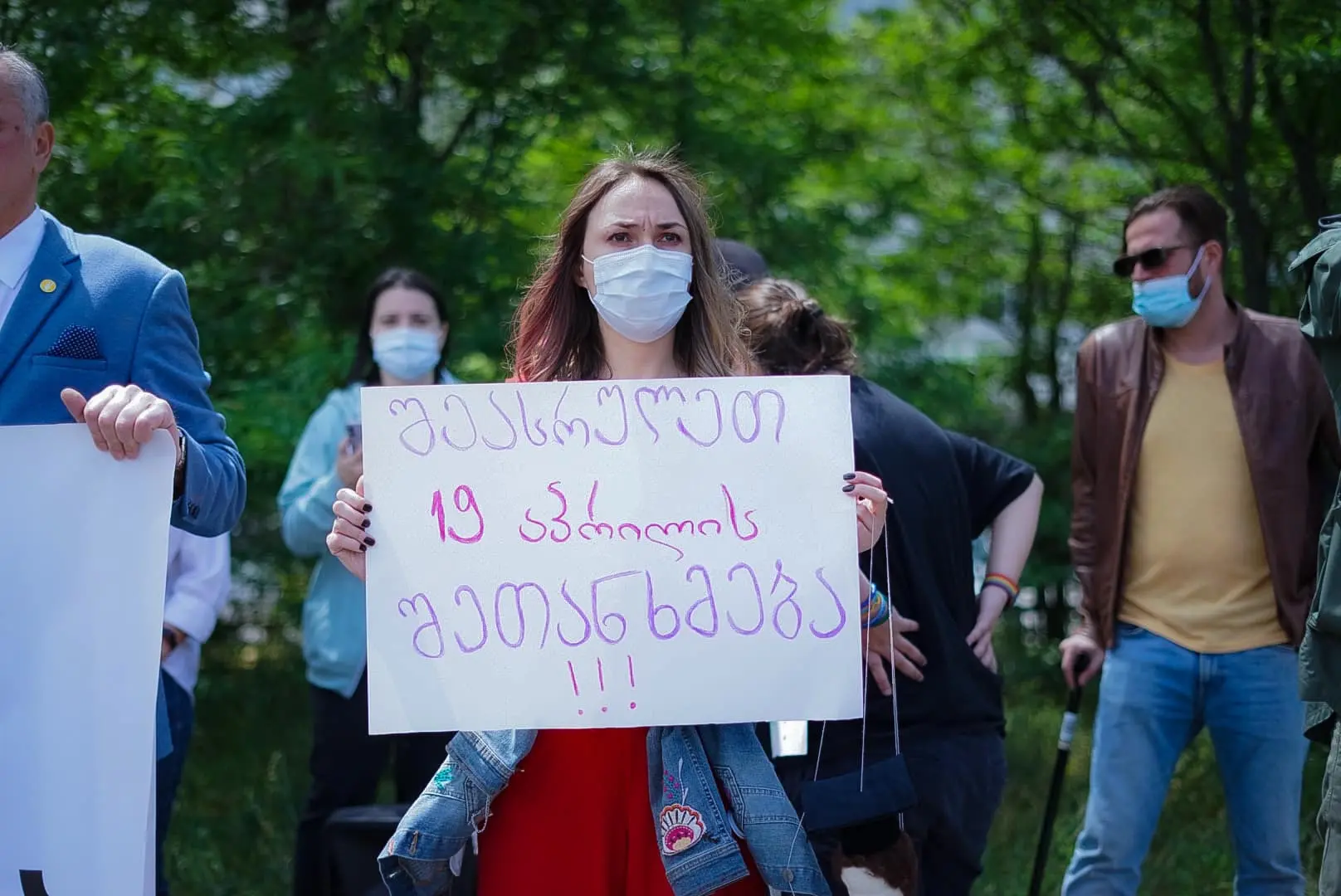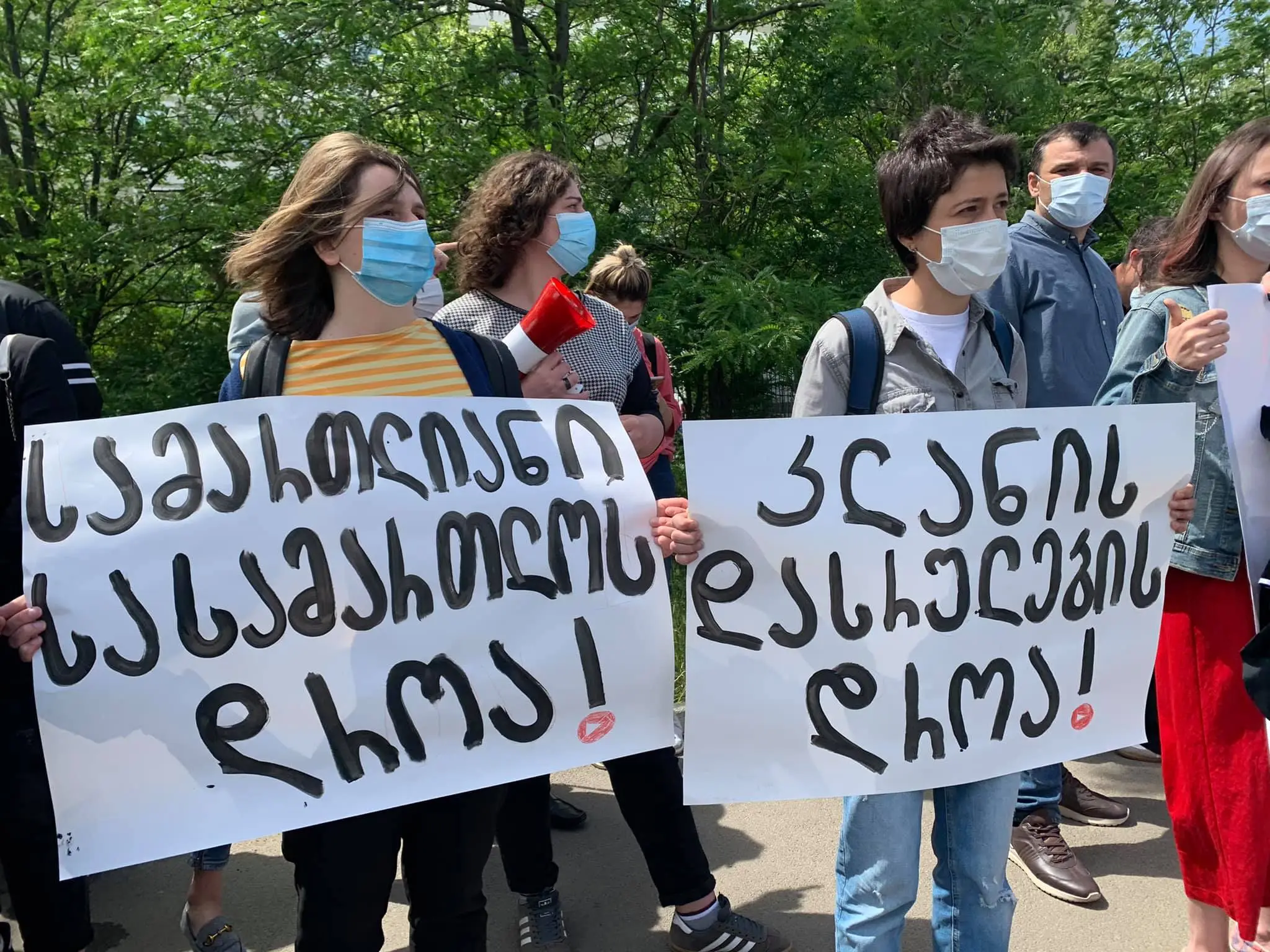The “Clan” represents an informal network entrenched within the Georgian justice system, purportedly overseen, shielded, and wielded by the oligarch and de facto ruler of the country, Bidzina Ivanishvili, to advance his personal political agenda. This starkly contrasts with the “Georgian Dream” party’s initial pledge to restore justice when it ascended to power.
The whistleblowing campaign against the court clan stands out as one of the pivotal endeavors undertaken by the “Shame Movement”. Since 2019, multiple installments of the documentary series “Clan” have been produced as part of this campaign, running alongside street protests.
Two years after the film’s production, the US State Department imposed sanctions on four members of the clan: Mikheil Chinchaladze, Levan Murusidze, Irakli Shengelia, and Valerian Tsertsvadze. The sanctions cited their involvement in substantial corrupt activities under visa ban rule 7031(c). These sanctions are intended to extend not only to the judges themselves but also to their family members.
On June 27, 2021, the judges met in a special meeting. In public statements, clan members unanimously condemned the country’s strategic partners, opposition parties, non-governmental sector, and “special films” created by the movement.
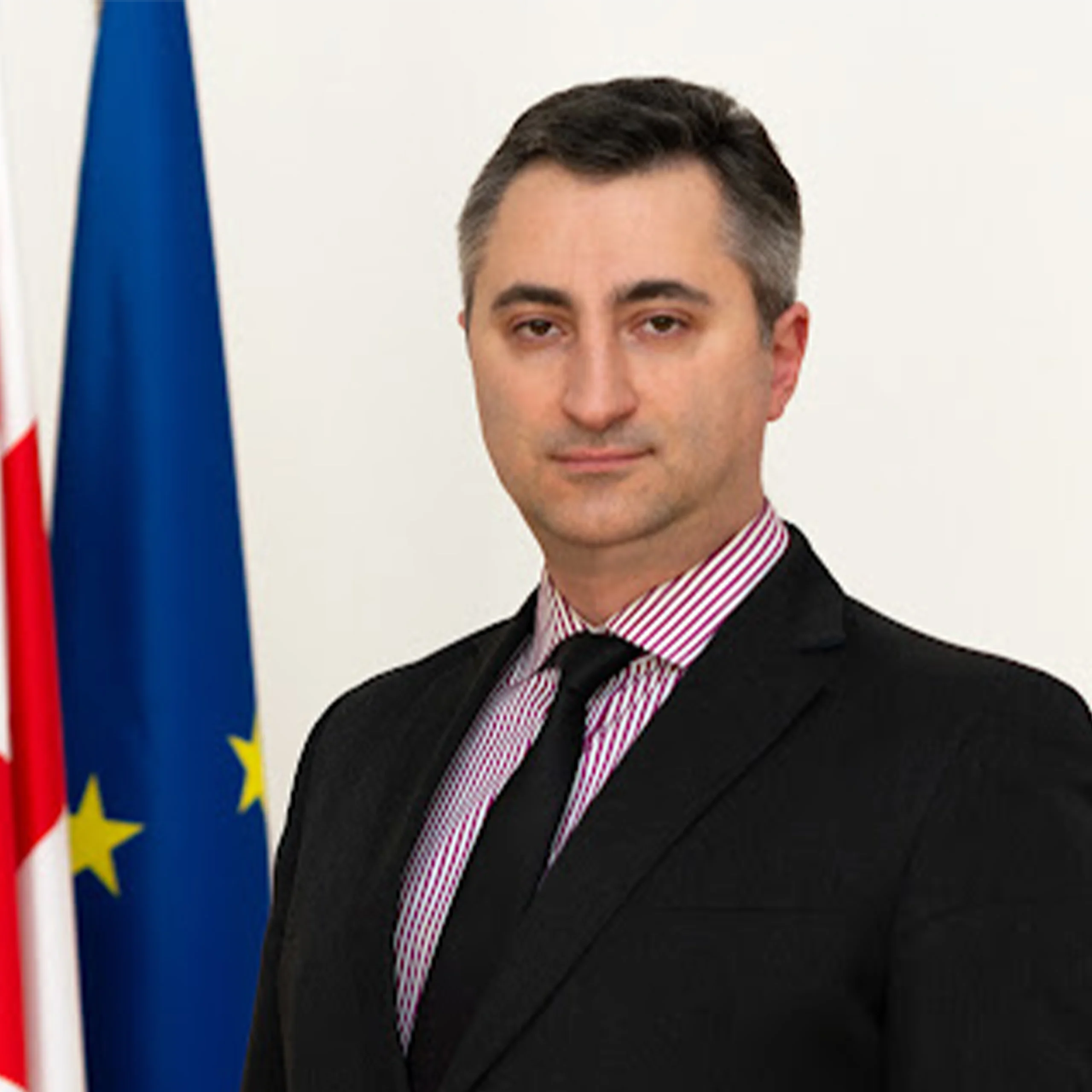
The Shame Movement’s “Terrorist Act”
On December 12, 2019, the Legal Affairs Committee of the Parliament held a vote on candidates for the position of Supreme Court judge. Most candidates were associated with the so-called ‘Clan’ within the court. There were lingering questions about the educational background of Shalva Tadumadze, a candidate for the presidency of the Supreme Court. It was evident that the court’s integrity was at stake. Despite efforts by citizens and representatives of political parties to protest outside the parliament, deputies proceeded with their legislative duties. Subsequently, the police arrested 16 individuals at the rally.
In an attempt to disrupt the voting process, just minutes before it commenced, an incident occurred with the assistance of opposition MPs: a veterinary antiseptic solution was opened in the plenary meeting hall. Although harmless, this solution emits a highly foul odor akin to feces. Despite the smell, there were instances where individuals, influenced by popular medical myths, even consumed it for a brief period.
The Parliament was unaware of the harmless nature of the solution, prompting deputies to evacuate the session hall and halt the voting process. One Georgian Dream deputy labeled the incident a terrorist act, while others deemed it a chemical attack. The Ministry of Internal Affairs initiated an investigation under Article 117 of the Criminal Code, which stipulates that intentional infliction of serious harm to health carries a minimum punishment of 3 years of imprisonment.
The uncertainty was short-lived as the movement quickly claimed “responsibility” for orchestrating the “terrorist act”!
Ultimately, the voting proceeded, and Georgian Dream appointed 14 judges to the Supreme Court for life. Given the incident’s comical nature, the investigation into the odor incident in parliament was not pursued further.
Clan and the elections of the Supreme Council of Justice
An extraordinary conference of judges took place on May 26, 2021, during which most judges were tasked with electing 4 Supreme Council of Justice members. The conference occurred amidst an action organized by the “Shame Movement”.
The Supreme Council of Justice, regarded as the guardian of judicial independence, serves as the primary governing body of the judiciary. Out of its 20 members, 5 non-judge members are elected by Parliament, while 4 judges are elected through direct voting at a conference of member judges. The Council holds significant authority, including appointing judges, dismissing them from their positions, and imposing disciplinary sanctions.
The Chinchaladze-Murusidze clan, aligned with political authorities, exerts a dominant influence over the justice system and fully controls the Supreme Council of Justice. Consequently, the clan wields substantial sway over the vast majority of judges. This reality is underscored by the consistent practice observed during judges’ conferences, where judges invariably choose candidates nominated by the Chinchaladze-Murusidze clan.
Notably, the agreement document dated April 19, 2021, brokered with the mediation of strategic partners, encompasses court reform, including restructuring the Supreme Council of Justice. However, despite commitments made by ruling and opposition parties to the international community, parliamentary discussions on justice reform have yet to commence.
In light of this, holding an extraordinary conference of judges and electing judicial members of the Council under existing legislation obstructs the realization of quality and effective justice. It further consolidates the interests of political authorities and clan groups within the court, running counter to the spirit of the April 19 agreement.
On June 17, 2021, the Supreme Council of Justice made two significant decisions. Firstly, it appointed over 40 judges to various positions. Additionally, it presented 9 candidates for Supreme Court judges to the Parliament.
Despite the longstanding issue of a shortage of judges within the common court system, adding new staff is occurring amidst the dominance of clan rule. Neither the government nor the so-called “Klan” has demonstrated the will to enhance justice or enact genuine system reform. Despite numerous appeals, including from international partners, willingness has yet to be shown to improve justice or undertake substantive reform within the system. This includes refraining from altering the procedure for electing non-judge members of the Council and making decisions to ensure the appointment of the most qualified and impartial candidates.
Achieving freedom from clan rule within the judiciary necessitates transforming the Supreme Council of Justice into an independent and impartial body.
